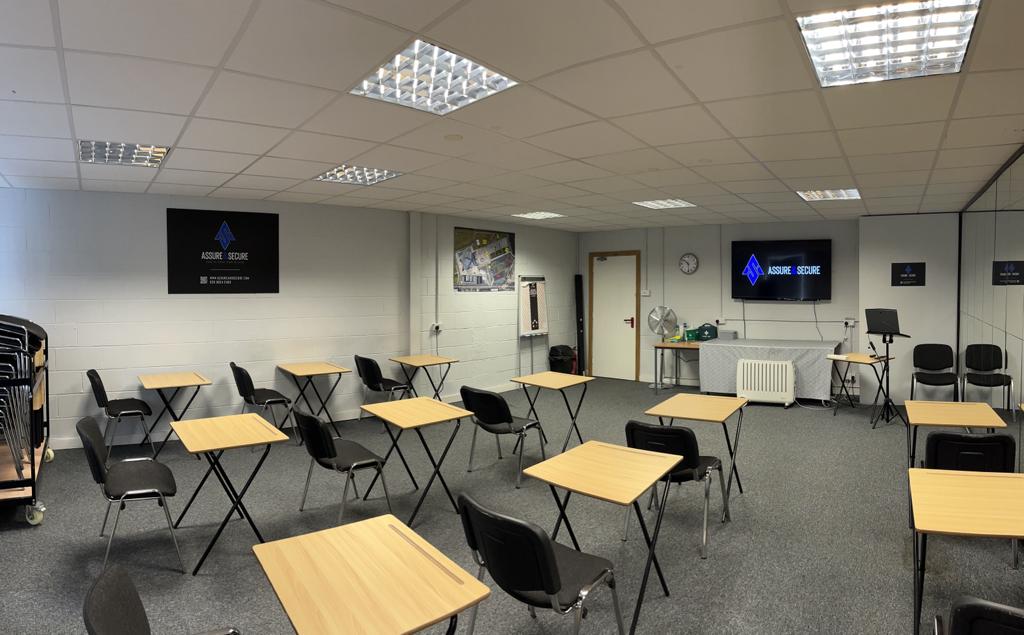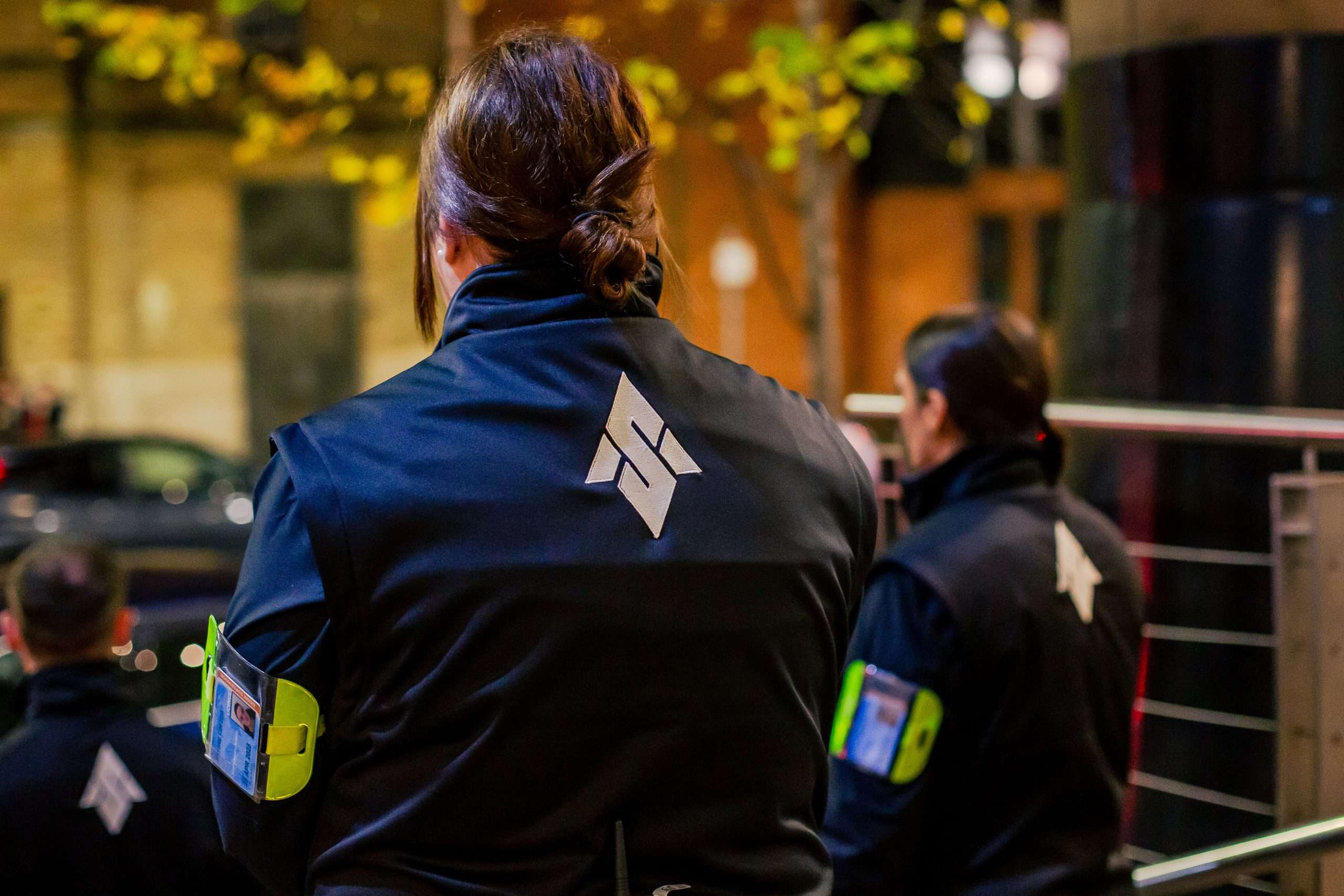1. Introduction
To obtain a front-line Door Supervisor SIA (Security Industry Authority) license, individuals must undergo comprehensive training that equips them with the necessary skills to ensure the safety and security of venues and their patrons. This training typically covers a range of topics crucial for adequate door supervision.
Participants learn about conflict management, their legal framework, and the principles of physical intervention. They are educated on assessing and minimising risks, identifying threats, and diffusing tense situations. The training emphasises effective communication and customer service skills, as door supervisors often interact with diverse groups of people.
Moreover, candidates are instructed on emergency procedures, first aid basics, and maintaining a vigilant and proactive stance to prevent incidents. The course typically involves practical scenarios to apply theoretical knowledge, ensuring individuals can handle real-life situations effectively.
Upon completing the training, candidates are eligible to apply for an SIA license, a legal requirement for anyone looking to work as a door supervisor in the UK. This license shows the individual’s competence and commitment to maintaining a secure and orderly environment. Continuous professional development is encouraged to keep skills up-to-date and ensure ongoing compliance with industry standards.
1.1 Level 2 Award for Door Supervisors in the Private Security Industry:
- This qualification is delivered in a face-to-face setting over a six or 7-day period (excluding any first aid training)
- Assessment Invigilated multiple choice papers (MCQ), practical observations (Obs)
| Qualification Title | Unit Title | SIA total learning and assessment time | SIA minimum contact time | SIA permitted self-study from the SIA total learning time – up to a maximum of | Ofqual Total Qualification Time |
| Level 2 Award for Door Supervisors in the Private Security Industry Note: minimum of 6 days only where self-study can be evidenced. No self-study means a minimum of 52 hours over seven days. | Principles of Working in the Private Security Industry | 17 | 9 | 8 | 17 |
| Principles of Working as a Door Supervisor in the Private Security Industry | 11 | 11 | Not Permitted | 14 | |
| Application of Conflict Management in the Private Security Industry | 11 | 11 | Not Permitted | 13 | |
| Application of Physical Intervention Skills in the Private Security Industry | 13 | 13 | SIA permitted self-study from the SIA total learning time – up to a maximum of | 17 | |
| Total | 52 (min 7 days) | 44 (min 6 days) | 8 | 61 |
1.2 Venue Requirements
The training venue should be suitable for learning and meet all relevant Health and Safety requirements.
Learners should have sufficient space to demonstrate the required practical scenarios (minimum of 2m2 per learner for the physical intervention unit). The assessment room for MCQ examinations must meet SIA Examination and Invigilation Policy requirements.

1.2.1 Equipment Requirements
The centre must provide appropriate equipment to support classroom, knowledge-based learning and assessment (flipcharts, pens, projector, clock, etc). Additional equipment to support search and practical training sessions, such as hand-held metal detectors, radios and props, are also required as standard requirements for security qualifications.
1.2.2 Blended Learning
Distance learning (blended approach) may be used for elements of this qualification.
1.2.3 Trainer to Learner ratio
The maximum Trainer-to-learner ratio for this qualification is 1:12.
1.2.4 Recommended Resources
- Security Industry Authority website
- ACT (Action Counters Terrorism) Awareness e-learning:
1.3 Assessment Requirements
Learners are assessed for this qualification through:
1.3.1 Multiple-Choice Question Papers (MCQ)
The MCQ papers will be taken under examination conditions, i.e. learners will sit a minimum of 1.25 metres apart, will not confer during the examination and no electronic devices (such as mobile phones) or books, including dictionaries, will be permitted.
Principles of Working in the Private Security Industry
Language of Assessment English
Duration 110 minutes
Pass mark 70% (51 / 72)
Grading Pass / Fail
Principles of Working as a Door Supervisor in the Private Security Industry
Language of Assessment English
Duration 75 minutes
Pass mark 70% (35 / 50)
Grading Pass / Fail
Application of Conflict Management in the Private Security Industry
Language of Assessment English
Duration 30 minutes
Pass mark 70% (14 / 20)
Grading Pass / Fail
Application of Physical Intervention Skills in the Private Security Industry
Language of Assessment English
Duration 45 minutes
Pass mark 80% (24 / 30)
Grading Pass / Fail
1.3.2 Question and Answer session (Q&A)
Application of Physical Intervention Skills in the Private Security Industry
The following ‘critical knowledge areas’ are to form part of a recorded discussion to ensure learners know their importance.
- Identify the risk factors involved with the use of physical intervention
- Recognise the signs and symptoms associated with acute behavioural disturbance (ABD) and psychosis
- State the specific risks associated with positional asphyxia
- State the specific risks associated with prolonged physical interventions
- Identify how to deal with physical interventions on the ground appropriately
- State how to manage and monitor a person’s safety during physical intervention
Language of Assessment English
Duration 5 minutes
Pass mark 100% (6 / 6)
Grading Pass / Fail
1.3.3 Practical Observations (Obs)
Principles of Working in the Private Security Industry
Externally set, internally assessed activity based on the completion of an evidential statement
Principles of Working as a Door Supervisor in the Private Security Industry
Externally set, internally assessed observations of searching and using communication devices with
observation sheet
Application of Conflict Management in the Private Security Industry
Externally set, internally assessed of one practical scenario with observation sheet per learner
Application of Physical Intervention Skills in the Private Security Industry**
1.4 Results
The centre must submit learner results within ten working days of assessment. The awarding organisation will issue verified results and appropriate certification to the approved centre within seven working days of receiving the results. Centres will forward results and/or certificates to learners, who can expect to receive them within 20 working days of taking the assessment. If learners have not received results and/or certificates within 25 working days, they should contact the centre in the first instance.


0 Comments